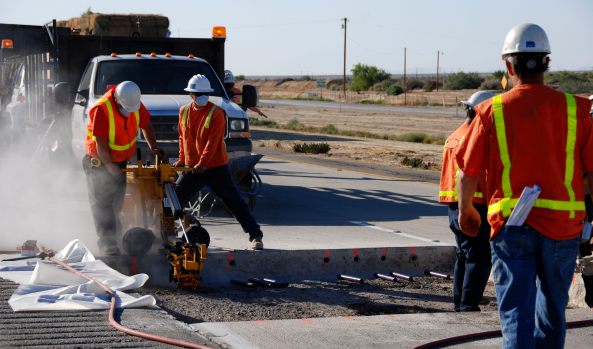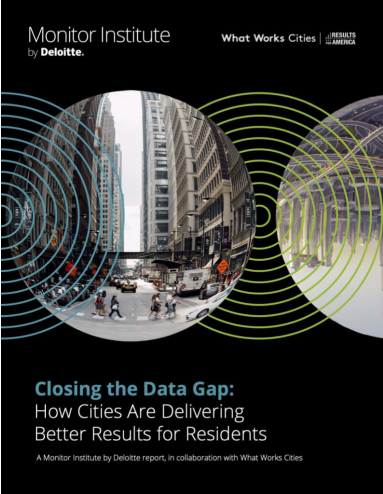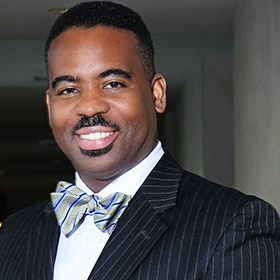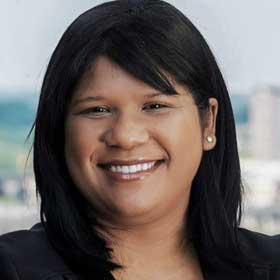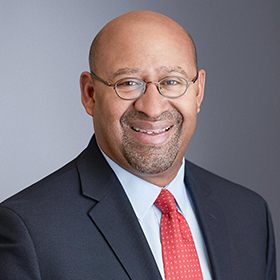About What Works Cities
Using data to deliver results for residents
Launched in 2017, Bloomberg Philanthropies What Works Cities recognizes and celebrates local governments for their exceptional use of data to inform policy decisions, allocate funding, improve services, evaluate the effectiveness of programs and engage residents. What Works Cities provides cities at all points in their data journey with a standard of excellence that shows how investing in data and evidence practices can lead to tangible outcomes for residents.
Embedding data and evidence into decision-making sets the foundation for stronger, safer and healthier communities. Data-informed cities produce sustainable solutions to endure today’s crises and tackle tomorrow’s challenges, set better priorities to make every dollar count, budget effectively and better engage their communities.
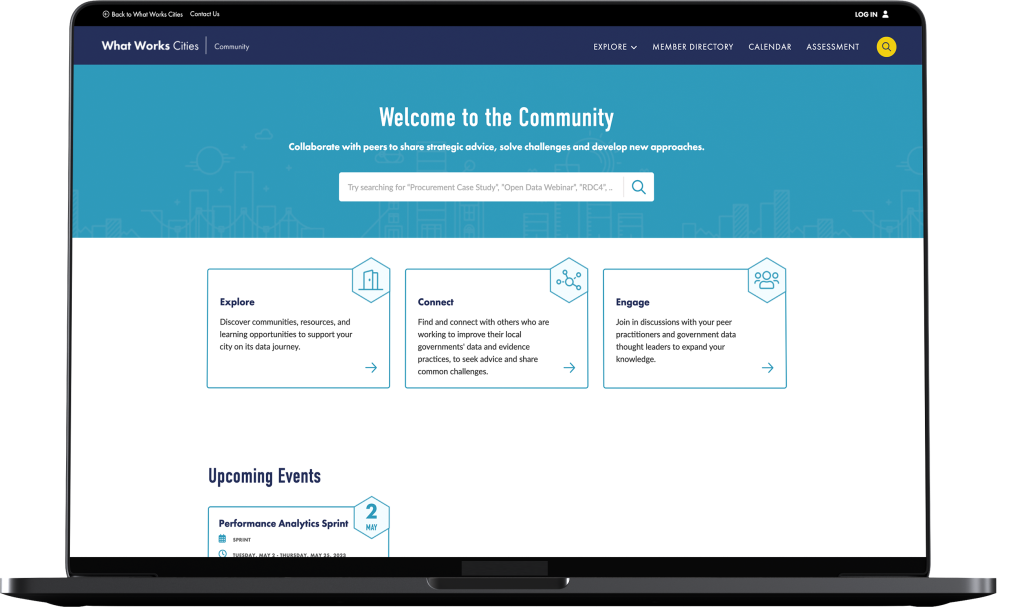
Joining the Certification Community
After completing the Assessment, cities immediately join their peers in the Certification Community. This community equips city leaders and staff with the skills they need to achieve Certification, grow their data practices and improve outcomes for residents. The Certification Community is a unique space to solve challenges and share successes with innovative, data-driven peers working to build data capacity in their cities. It includes exclusive access to free learning opportunities, expert coaching, resources, a community forum, and more.

Want to become a Certified city?
What Works Cities Certification is open to all cities in North, Central and South America with a population of at least 30,000 interested in improving their data practices.
Standard Committee Members
The What Works Cities Certification Standard Committee comprises leading experts from a dozen organizations that support cities. The Standard Committee has endorsed and lent its knowledge and experience to the development of What Works Cities Certification and the What Works Cities Standard. They serve as advisors during the Certification assessment process and actively participate in site visits with select cities.
Learn more about the members of the Standard Committee:
Beth Blauer
Associate Vice Provost for Public Sector Innovation at Johns Hopkins University
Dr. Robert Blaine
Senior executive and director for the National League of Cities’
Bill Eggers
Executive Director of Deloitte’s Center for Government Insights
Marcelo Facchina
Principal Executive in Smart Cities and Digital Government at CAF
Emma Gawen
Digital strategy and product specialist at Public Digital
Lourdes German
Executive Director, Public Finance Initiative
Michael Hallsworth
Managing Director of BIT North America. He is also the former Director of Health and Tax at the Behavioural Insights Team
Rochelle Haynes
Managing Director, What Works Cities
Michele Jolin
CEO and Co-Founder for Results for America
Neil Kleiman
Director of the New York University Wagner Innovation Labs
Jeffrey B. Liebman
Director of the Government Performance Lab at the Harvard Kennedy School of Government and the Malcolm Wiener Professor of Public Policy
Lou Moore
Chief Technology Officer at Code for America
Michael Nutter
Former Mayor of Philadelphia
Carole Saab
CEO of the Federation of Canadian Municipalities
Meet our partners
Our expert partners help local governments build the capacity and skills to use data and evidence to make more informed decisions, deliver more effective services and programs, and improve residents’ lives. This support helps cities advance toward achieving What Works Cities Certification.
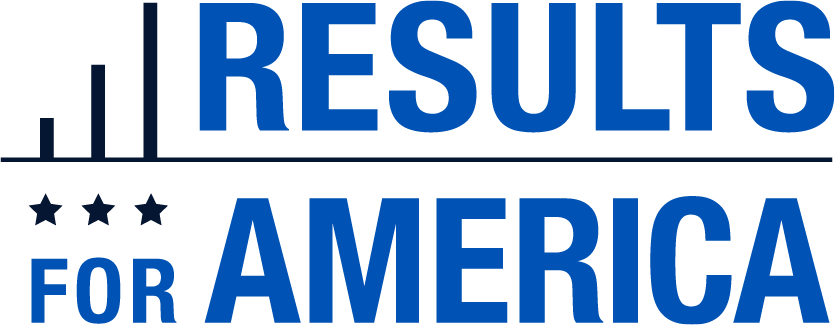
Results for America (RFA) is helping decision-makers at all levels of government harness evidence and data to make progress on our greatest challenges. Our mission is to make investing in what works the “new normal,” so that when policymakers make decisions, they start by seeking the best evidence and data available, then use what they find to get better results.
RFA serves as What Works Cities’s lead partner, coordinating the work of all partner organizations. RFA developed a standard of excellence for well-managed, data-driven local government through What Works Cities Certification. RFA also builds demand for this work across the Americas, and provides a path to success for cities through staff and leadership development, a learning network, and technical assistance.

The Behavioral Insights Team (BIT) is a social purpose organization that helps governments around the world boost their impact through the application of behavioral science and rigorous evaluation techniques. As part of What Works Cities, BIT helps cities develop and evaluate ideas for improving government services.

The Government Performance Lab at the Harvard Kennedy School conducts research on how governments can improve the results they achieve for their residents. An important part of this research model involves providing pro bono technical assistance to state and local governments. Through this hands-on involvement, the Government Performance Lab gains insights into the barriers that governments face and the solutions that can overcome these barriers. As part of What Works Cities, the Government Performance Lab supports cities in improving the results they achieve with their contracted dollars.

The Center for Government Excellence (GovEx) at Johns Hopkins University helps governments use data to make informed, effective decisions that improve people’s lives. As part of What Works Cities, GovEx provides technical assistance and strategic training that enhances cities’ capacities to leverage cutting-edge data management, performance management, and advanced analytics practices to improve outcomes for residents across all policy areas.

Digital transformation is the act of radically changing how your organization works, so that it can survive and thrive in the internet era. We are a consultancy that can help make it happen by working directly with your leaders and teams. We take quick, effective action and give targeted advice to help your digital team transform your organization.

Digital transformation is the act of radically changing how your organization works, so that it can survive and thrive in the internet era. We are a consultancy that can help make it happen by working directly with your leaders and teams. We take quick, effective action and give targeted advice to help your digital team transform your organization.
